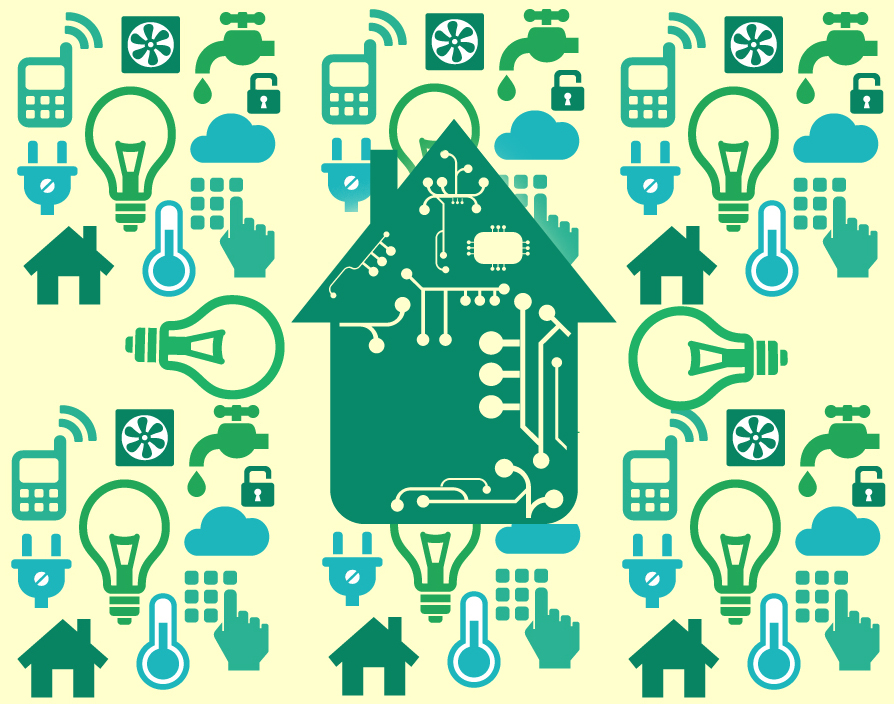On the face of it, the Honeywell Kitchen Computer was an utter bust. When the bright-red home appliance appeared on cover of the Nieman Marcus winter catalogue in 1969, it was advertised as the ultimate tool to assist housewives in their quest to prepare the perfect Christmas feast. The machine – which had the not-so-catchy official name H316 – was designed to store recipes and create complete menus based on the flavours of the entrée. But despite these advantages, not a single device was ever sold due to the fact that any buyer would have required enough space to accommodate the 45kg device, some serious engineering skills and $10,600 to spare.
While some may argue that the advertisement was just a publicity stunt and that the computer was never intended for mass-adoption by the public, the machine serves as a precursor to modern smart-home technology. Today, not only would the average smartphone put the H316 to shame, these last few years have also seen the rise of a string of connected devices that can truly assist homeowners.
For instance, thermostats, security cameras and light bulbs can now be connected via wifi or Bluetooth and controlled by a simple swipe on your smartphone or just by talking out loud within range of your Amazon Echo speaker. These connected devices are the cornerstones of modern smart-home technology.
And given that the accountancy firm PwC is estimating that the connected home market will be worth $149bn globally by 2020, franchises have everything to win by integrating the trend into their business models in order to get a slice of that very profitable pie. And they better do it soon. “Whoever figures this out first will have a gigantic proportion of the market,” says Thomas Rebel, managing director of HomeServe Connect, the connected-home and energy-efficient boiler franchise. “And the gap between the company that comes first and those that come second and third is going to be huge.”
That’s why the franchise started to roll out its own smart-home service earlier this summer. Given that HomeServe, the home-assistance business, has made a name for itself by installing and maintaining boilers as well as plumbing, it made sense for HomeServe to start by expanding its services to include smart thermostats and early leakage-warning devices. But deciding to start with these devices presented the company with another problem: how to sell them. “There aren’t a lot of people who wake up in the morning and get excited about buying a smart thermostat,” says Rebel.
“These devices aren’t cheap, so you have to find a way to make it meaningful for customers to buy them.” For instance, whenever his franchisees are having a conversation with a customer about a new boiler, it’s a “pretty good opportunity to start talking about smart thermostats.”
So far, HomeServe franchisees have been given the choice to voluntarily integrate the devices into their own business model or to simply go on as usual. “We’re not forcing it down our people’s throats,” says Rebel. “We’re just making the case that it’s worth doing because it will make your customers happier and you’ll end up with more revenue.”
Leading the way
In real estate, staging refers to the process of a real-estate agent changing a house to make it more sellable. This can include painting a wall a different colour, removing family photographs and now, thanks to Coldwell Banker, the international real-estate franchise, this also includes setting up connected devices.
In August, the franchise introduced the world’s first ever smart-home staging kit, which includes installing smart thermostats, smoke alarms, security cameras, door locks and lights: everything you need to make a house a connected one. This is just the latest of moves that has seen the franchise become a real-estate leader by adopting smart-home technology.
Previously, the 110-year old company has launched a partnership with CNET, the tech publication, to establish a smart-home standard and developed a training program for its franchisees so that they can learn about the technology. The main reason for these initiatives has to do with the simple rule of supply and demand: house buyers want smart homes. Having recently surveyed 1,250 American adults, the franchise revealed that 54% would choose one over a regular house.
Another survey from John Burns Real Estate Consulting found that prospective buyers would pay more for smart homes. Given these studies, Coldwell Banker’s decision to invest in the technology as well, as the training of its people, makes perfect sense. “As a franchisor, you obviously want to be ahead of the curve to help your franchisees,” says David Siroty, vice-president of communications at Coldwell Banker.
And franchisees welcomed the move. “At the same time we were creating our programme, our agents were starting to be questioned by both buyers and sellers about smart-home technology,” says Siroty. “If we hadn’t done this, our agents would’ve lost opportunities to get sellers and buyers.”
And this is why it will benefit franchises to adopt connected devices as a part of their established models: it will help them seize any new opportunities that present themselves. “If you don’t, you’ll just become a smaller and less successful player on the market,” concludes Rebel.

Eric Johansson
As web editor and resident Viking, Johansson ensures Elite Franchise is filled with engaging and eclectic entrepreneurial stories. While one of our most prolific franchise writers, he has sharpened his editorial teeth by writing about entertainment and fitness. Follow him on Twitter at @EricJohanssonLJ to catch up with his stream of consciousness.

Eric Johansson
As web editor and resident Viking, Johansson ensures Elite Franchise is filled with engaging and eclectic entrepreneurial stories. While one of our most prolific franchise writers, he has sharpened his editorial teeth by writing about entertainment and fitness. Follow him on Twitter at @EricJohanssonLJ to catch up with his stream of consciousness.


































